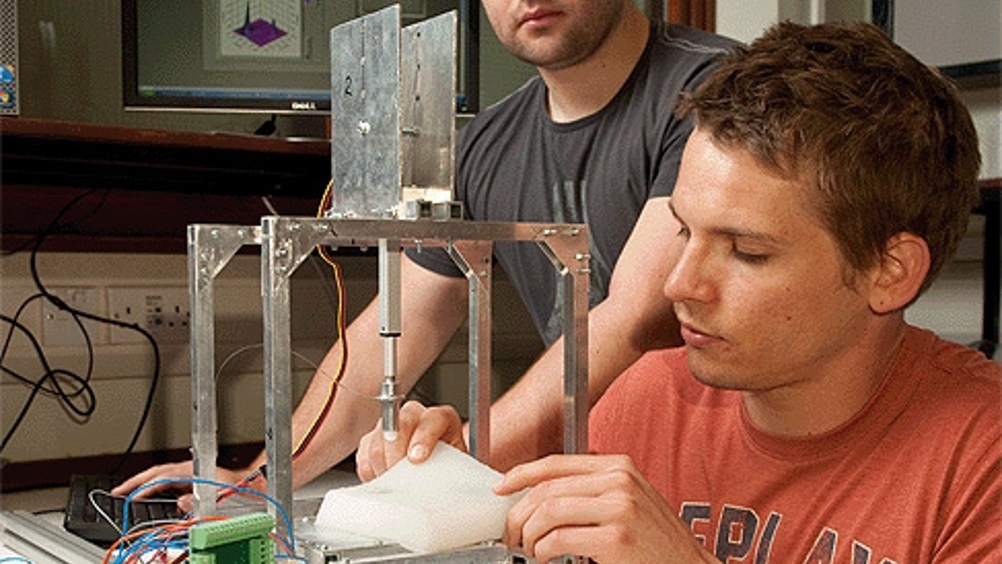While these techniques have allowed surgeons to operate through small incisions, thereby reducing complications and improving recovery, they also relinquish a sense of feel for the surgeon.
This is particularly important for cancer surgeons who like to feel the tissue they are cutting out — an important means of double-checking where the tumour is and if it is malignant or benign.
‘With keyhole surgery there is still a level of force perception but it’s diminished quite greatly,’ said James Chandler, one of two mechanical engineering students at Leeds University working on the project.
’So the surgeon will work around a fulcrum point that reverses the hand motions and all they can feel is reaction forces that are scaled depending on how far into the patient the tools are — but with robotic surgery it’s completely gone as there’s no direct contact.’
The project began with a comprehensive data-gathering phase on what the actual reactive forces involved in surgery were. This involved using blocks of silicon to simulate various tissues and an automated tri-axial robotic probe with a force sensor. They also embedded hard ball-bearings within the artificial tissue as a proxy for tumours, to see how this affected force responses.
The automated nature of the data capture meant it could be easily gathered and fed into finite-element modelling to create a bespoke, virtual, computational surgical environment. This model was coupled to a third-party remote handheld surgical tool so that appropriate forces could be applied to the user.
’We developed a link library to interface with the haptic device itself from a high-level control programme that allowed us to access all the functions and send forces directly to it,’ said Earle Jamieson, who worked with Chandler.
The system the students have developed is likely to be initially used as a training tool to help surgical students get a better feel for keyhole techniques.
However, aspects of the software and system could eventually be used in real surgical operations. But rather than trying to retro-fit haptic feedback into older keyhole techniques, the team believes it might be best to skip a generation in terms of technology.
‘Building it into new generations of robotics surgery is the most feasible option. But a lot of work needs to be done from where we are now for that to be possible,’ Chandler said.











UK Enters ‘Golden Age of Nuclear’
The delay (nearly 8 years) in getting approval for the Rolls-Royce SMR is most worrying. Signifies a torpid and expensive system that is quite onerous...